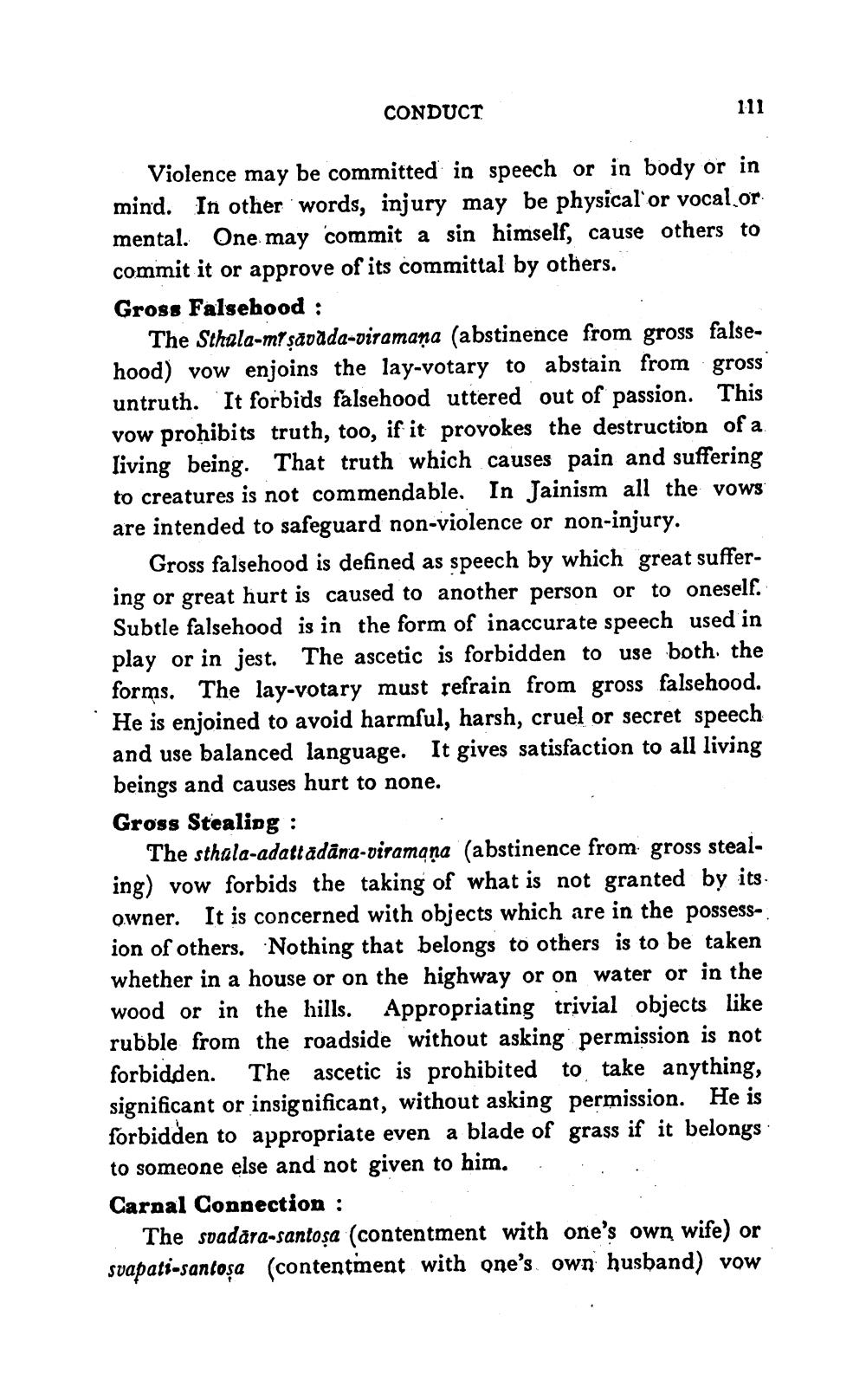________________
CONDUCT
111
Violence may be committed in speech or in body or in mind. In other words, injury may be physical or vocal or mental. One may commit a sin himself, cause others to commit it or approve of its committal by others. Gross Falsehood :
The Sthala-mt savāda-viramaņa (abstinence from gross falsehood) vow enjoins the lay-votary to abstain from gross untruth. It forbids falsehood uttered out of passion. This vow prohibits truth, too, if it provokes the destruction of a living being. That truth which causes pain and suffering to creatures is not commendable. In Jainism all the vows are intended to safeguard non-violence or non-injury.
Gross falsehood is defined as speech by which great suffering or great hurt is caused to another person or to oneself. Subtle falsehood is in the form of inaccurate speech used in play or in jest. The ascetic is forbidden to use both the forms. The lay-votary must refrain from gross falsehood. He is enjoined to avoid harmful, harsh, cruel or secret speech and use balanced language. It gives satisfaction to all living beings and causes hurt to none. Gross Stealing :
The sthala-adattadana-oiramana (abstinence from gross stealing) vow forbids the taking of what is not granted by its owner. It is concerned with objects which are in the possess-, ion of others. Nothing that belongs to others is to be taken whether in a house or on the highway or on water or in the wood or in the hills. Appropriating trivial objects like rubble from the roadside without asking permission is not forbidden. The ascetic is prohibited to take anything, significant or insignificant, without asking permission. He is forbidden to appropriate even a blade of grass if it belongs to someone else and not given to him. Carnal Connection :
The svadara-santoșa (contentment with one's own wife) or svapati-santoșa (contentment with one's own husband) vow




